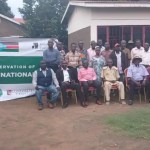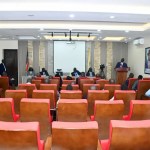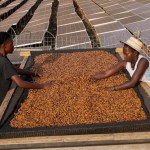(Juba) – The University of Juba has been ranked as the number one public university in South Sudan, according to the AD Scientific Index 2025. The global academic ranking placed the university first among four public universities included from South Sudan. The other ranked universities are the University of Bahr El-Ghazal (2nd), Upper Nile University (3rd) and the University of Rumbek (4th).
The AD Scientific Index evaluates institutions based on the scientific performance and academic impact of individual scholars. It uses internationally recognised metrics such as the H-index (measuring research productivity and impact), the i10-index (number of publications with 10 or more citations), and total citation counts over both a scientist’s full career and the last six years.
As of June 2025, a total of 24 scientists from South Sudan are listed in the index, with their affiliations spread across the four public universities. The University of Juba leads the list, followed by the University of Bahr El-Ghazal, Upper Nile University, and the University of Rumbek. No private universities, companies, or hospitals in South Sudan have yet been ranked by the system.
The AD Scientific Index is updated every two days and covers more than 24,000 institutions globally. It offers real time tracking and comparisons across universities, colleges, companies, hospitals, and research centres. Institutions are ranked at the national, continental, and global levels, and the index also provides analysis by type of institution, public or private, allowing fairer comparisons within sectors.
Founded in 1977, the University of Juba has long been considered South Sudan’s flagship institution for higher learning. It is home to a broad range of faculties and research centres, and its leadership in the 2025 ranking reflects ongoing efforts to maintain academic and scientific standards, even as the country continues to rebuild and stabilise.
The University of Bahr El-Ghazal, based in Wau, takes second place in the national rankings. It serves as a key academic hub in Western Bahr el Ghazal State. Upper Nile University, located in Malakal and ranked third, has faced significant disruptions due to conflict over the past decade but remains an important institution in the Greater Upper Nile region. The University of Rumbek, placed fourth, is among the country’s younger institutions and is showing signs of growth in academic participation.
The inclusion of these four public universities in a respected global ranking is seen as a positive development for South Sudan’s higher education sector. While the number of listed scientists remains small, the visibility provided by the AD Scientific Index could encourage further investment in research, international collaboration and institutional development.
For students, the rankings may provide guidance in choosing institutions based on research strengths and academic reputation.
With no private universities or research institutions from South Sudan currently ranked, there is room for growth in broader academic participation. The AD Scientific Index includes rankings for hospitals, companies, and research institutes globally, meaning future improvements in South Sudan’s academic and scientific sectors could lead to more institutions being recognised.


















































